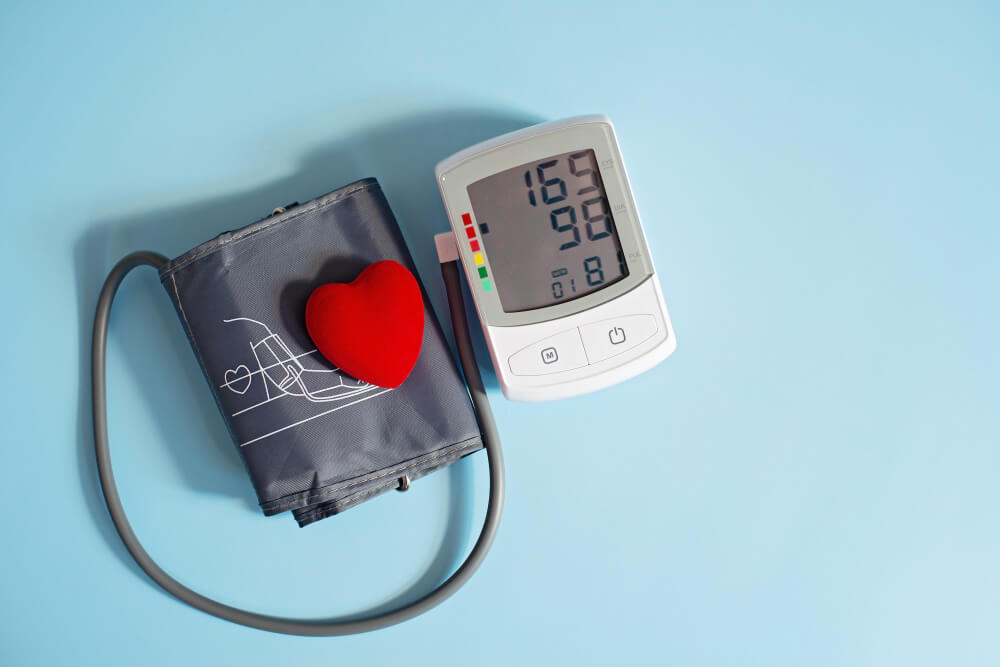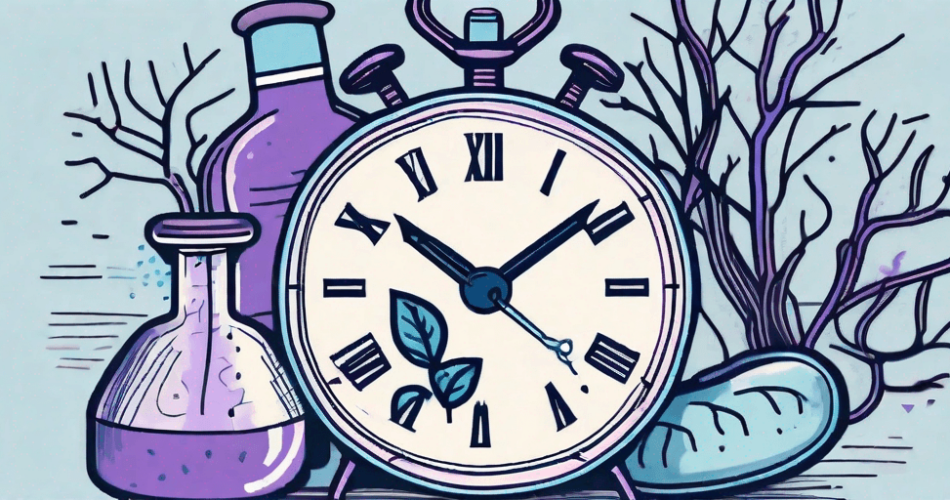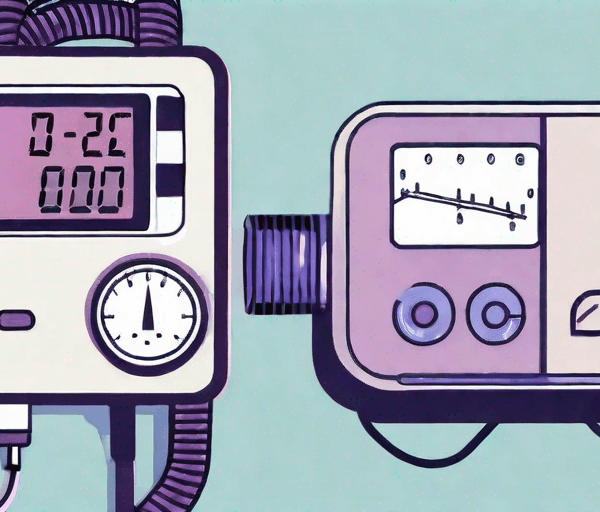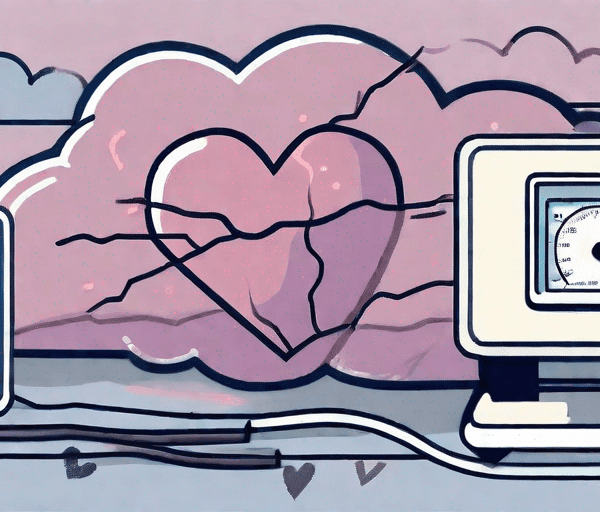High blood pressure, also known as hypertension, affects millions of people worldwide and is a significant risk factor for heart disease and stroke. Understanding the causes of high blood pressure is crucial in managing and preventing this condition. In this article, we will delve into the roots of high blood pressure and explore common causes. By unraveling these causes, we hope to provide you with a comprehensive overview and equip you with the knowledge to make informed decisions about your health.
Understanding High Blood Pressure
What is High Blood Pressure?
High blood pressure, also known as hypertension, occurs when the force of blood against the walls of the arteries is consistently too high. This condition affects millions of people worldwide and is often referred to as the “silent killer” because it typically has no symptoms. Normal blood pressure is typically around 110/70 mmHg, with the first number representing systolic pressure (when the heart contracts) and the second number representing diastolic pressure (when the heart is at rest). When your blood pressure exceeds 130/80 mmHg consistently, it is considered high.
High blood pressure can be classified into two types: primary (essential) hypertension and secondary hypertension. Primary hypertension is the most common type and develops gradually over time. It often has no identifiable cause but is influenced by various factors such as age, family history, lifestyle choices, and certain medical conditions. On the other hand, secondary hypertension is caused by an underlying health condition, such as kidney disease, hormonal disorders, or medication side effects.

The Importance of Maintaining Healthy Blood Pressure
Maintaining healthy blood pressure levels is vital for overall well-being. When blood pressure is consistently elevated, it puts strain on the heart, arteries, and organs. The heart has to work harder to pump blood throughout the body, which can lead to the thickening and narrowing of the arteries. Over time, this can result in the development of serious health conditions, such as heart disease, stroke, and kidney disease.
Heart disease is a leading cause of death worldwide, and high blood pressure is a significant risk factor for its development. When the arteries become narrow and hardened due to high blood pressure, it restricts blood flow to the heart muscle, increasing the risk of heart attacks and other cardiovascular complications. Similarly, high blood pressure can also damage the blood vessels in the brain, leading to an increased risk of stroke.
In addition to heart disease and stroke, high blood pressure can also affect the kidneys. The kidneys play a crucial role in filtering waste products and excess fluid from the blood. When blood pressure is consistently high, it can strain the blood vessels in the kidneys, impairing their function. This can eventually lead to kidney disease or even kidney failure if left unmanaged.
Understanding the causes of high blood pressure is the first step in preventing and managing this condition. By making lifestyle modifications, such as maintaining a healthy weight, eating a balanced diet low in sodium, engaging in regular physical activity, limiting alcohol consumption, and managing stress levels, individuals can reduce their risk of developing high blood pressure. Additionally, medication may be prescribed by healthcare professionals to help lower blood pressure in cases where lifestyle changes alone are not sufficient.
The Role of Genetics in High Blood Pressure
High blood pressure, also known as hypertension, is a common health condition that affects millions of people worldwide. It is characterized by elevated blood pressure levels, which can lead to serious health complications if left untreated. While lifestyle factors such as diet and exercise are well-known contributors to high blood pressure, recent research has shed light on the role of genetics in this condition.
How Genetics Influence Blood Pressure
Genetics, or your genetic makeup, can significantly influence your susceptibility to high blood pressure. Studies have shown that certain genes may affect how your body regulates blood pressure, including genes that control the production of proteins involved in blood vessel constriction and relaxation.
If high blood pressure runs in your family, you may be more likely to develop the condition. This is because genetic variations passed down through generations can increase the risk of developing high blood pressure. However, it is important to note that genetics alone are not the sole cause of high blood pressure. Other factors, such as lifestyle choices and environmental influences, also play a significant role.

Genetic Risk Factors for High Blood Pressure
While genes can contribute to high blood pressure, other factors interact with them to increase the risk further. For example, unhealthy lifestyle choices, such as a poor diet and lack of exercise, can exacerbate the genetic predisposition. This means that even if you have a genetic predisposition to high blood pressure, adopting a healthy lifestyle can help mitigate the risk and promote better blood pressure management.
Furthermore, studies have identified specific genetic variants that are associated with an increased risk of developing high blood pressure. These variants are involved in various biological pathways related to blood pressure regulation, such as the renin-angiotensin-aldosterone system and the sympathetic nervous system.
Understanding the genetic risk factors for high blood pressure can have important implications for personalized medicine and preventive strategies. By identifying individuals who are genetically predisposed to high blood pressure, healthcare professionals can provide targeted interventions and lifestyle modifications to reduce the risk and improve overall cardiovascular health.
Lifestyle Factors Contributing to High Blood Pressure
High blood pressure, also known as hypertension, is a common health condition that affects millions of people worldwide. While there are several factors that can contribute to high blood pressure, lifestyle choices play a significant role in its development and management. In this article, we will explore some of the key lifestyle factors that can influence blood pressure levels and discuss ways to maintain a healthy blood pressure.

The Impact of Diet on Blood Pressure
Your dietary choices have a profound impact on your overall health, including your blood pressure levels. Consuming a diet high in sodium, saturated fats, and cholesterol can increase the risk of high blood pressure. Sodium, commonly found in processed foods and table salt, can cause the body to retain water, leading to increased blood volume and higher blood pressure. Similarly, saturated fats and cholesterol can contribute to the buildup of plaque in the arteries, narrowing them and making it harder for blood to flow, resulting in elevated blood pressure.
On the other hand, a diet rich in fruits, vegetables, whole grains, and lean proteins can help maintain healthy blood pressure levels. Fruits and vegetables are packed with essential nutrients, such as potassium and magnesium, which have been shown to have a positive effect on blood pressure. Whole grains, such as brown rice and whole wheat bread, are high in fiber and can help lower blood pressure by improving heart health and reducing cholesterol levels. Lean proteins, such as skinless poultry, fish, and legumes, are excellent sources of protein without the added saturated fats found in red meat.
Physical Inactivity and Blood Pressure
A sedentary lifestyle is strongly associated with high blood pressure. Regular physical activity is essential for maintaining a healthy weight, strengthening the heart, and improving overall cardiovascular health. Engaging in aerobic exercises, such as brisk walking, swimming, or cycling, for at least 150 minutes per week can help lower blood pressure.
When you exercise, your heart becomes more efficient at pumping blood, reducing the pressure on your arteries. Regular physical activity also helps to improve blood vessel function, making them more flexible and responsive. Additionally, exercise can aid in weight management, as excess weight is often associated with high blood pressure. By maintaining a healthy weight, you reduce the strain on your heart and lower the risk of hypertension.

The Role of Stress in High Blood Pressure
Chronic stress can contribute to high blood pressure. When you experience stress, your body produces hormones that temporarily increase blood pressure. This response is part of the body’s natural “fight or flight” mechanism, preparing you to react to a perceived threat. However, if stress becomes chronic, your blood pressure may remain elevated for extended periods, increasing the risk of hypertension.
Managing stress is crucial for maintaining healthy blood pressure levels. There are various relaxation techniques that can help reduce stress, such as deep breathing exercises, meditation, and yoga. Engaging in regular exercise is also an effective way to manage stress, as it releases endorphins, which are natural mood boosters. Seeking support from friends, family, or a professional counselor can provide valuable insights and guidance in managing stress and its impact on blood pressure.
In conclusion, lifestyle factors such as diet, physical activity, and stress management play a significant role in determining blood pressure levels. By adopting a healthy diet, engaging in regular exercise, and managing stress effectively, you can maintain a healthy blood pressure and reduce the risk of hypertension. It is important to make these lifestyle changes a priority and consult with a healthcare professional for personalized guidance and support.
Medical Conditions and High Blood Pressure
Kidney Disease and Blood Pressure
Kidney disease is closely linked to high blood pressure. The kidneys play a crucial role in regulating blood pressure by removing waste products and excess fluid from the body. When the kidneys are not functioning correctly, it can lead to an increase in blood pressure. Managing kidney disease through medication and lifestyle changes is essential in controlling blood pressure levels.
Diabetes and High Blood Pressure
Diabetes and high blood pressure often go hand in hand. Individuals with diabetes are more likely to develop high blood pressure, and vice versa. The two conditions share common risk factors, such as obesity and unhealthy lifestyle choices. Managing blood sugar levels and implementing lifestyle modifications can help control both diabetes and high blood pressure.
Sleep Apnea’s Effect on Blood Pressure
Sleep apnea, a disorder characterized by pauses in breathing during sleep, is associated with high blood pressure. The frequent interruptions in breathing lead to oxygen deprivation and trigger the release of stress hormones, raising blood pressure levels. Treating sleep apnea through continuous positive airway pressure (CPAP) therapy or lifestyle changes can help improve blood pressure control.

Age and High Blood Pressure
How Age Affects Blood Pressure
As we age, the risk of developing high blood pressure increases. This is partly due to changes in the structure and function of blood vessels over time. Arteries become less flexible, and blood vessels may narrow, leading to higher blood pressure. Regular monitoring and appropriate management of blood pressure are crucial, especially as we advance in age.
High Blood Pressure in Young Adults
While high blood pressure is commonly associated with older adults, it can also affect young adults. Unhealthy lifestyle habits, such as poor dietary choices, lack of exercise, and stress, can contribute to high blood pressure at a young age. Establishing healthy habits early on and ensuring regular blood pressure check-ups are essential in preventing complications later in life.
In conclusion, high blood pressure is a significant health concern affecting individuals worldwide. Understanding the causes of high blood pressure, including genetic factors, lifestyle choices, and medical conditions, is crucial in its prevention and management. By prioritizing a healthy lifestyle, managing chronic conditions, and seeking regular medical care, we can unravel the roots of high blood pressure and work towards maintaining healthy blood pressure levels.
In summary, understanding the common causes of high blood pressure is the first step toward taking charge of your cardiovascular health. However, knowledge alone isn’t enough. It’s crucial not to underestimate the importance of regular check-ups with a healthcare professional. By booking an appointment and discussing your blood pressure concerns with a doctor, you’ll gain personalized insights and guidance on how to effectively manage this condition. High blood pressure is often referred to as the “silent killer” for a reason – it can lurk unnoticed, causing damage to your heart and blood vessels. So, don’t keep it to yourself or attempt to self-diagnose. Reach out for professional help today to embark on a journey toward healthier blood pressure levels and a longer, more vibrant life. Your heart deserves the best care, and seeking medical guidance is the first vital step toward achieving it.



